
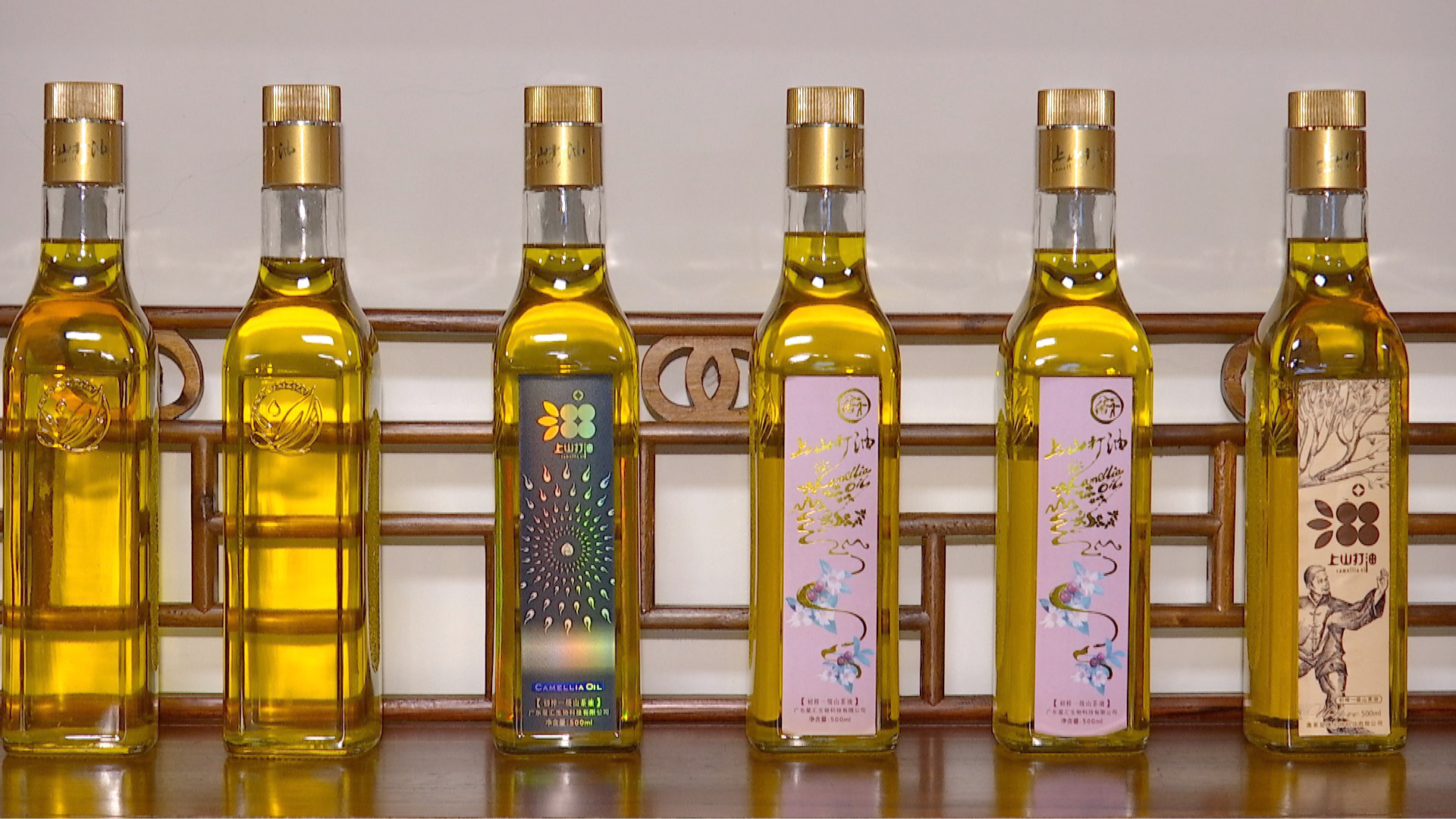
Located in a remote mountainous region with little to no arable land, Changzhou Village in south China's Guangdong Province was home to 32 registered impoverished households in 2016. That year, the local government decided to provide direct assistance to the community, with the harvesting of oil-tea camellia being the backbone of the poverty alleviation measures.
"Because Changzhou Village has a tradition of planting oil-tea camellia, we decided to designate this herb as the leading industry for poverty alleviation efforts. In three years, we've witnessed a significant transformation of the village's infrastructure and appearance," says Wang Tianyi, the first secretary of Changzhou Village and the head of poverty alleviation efforts.
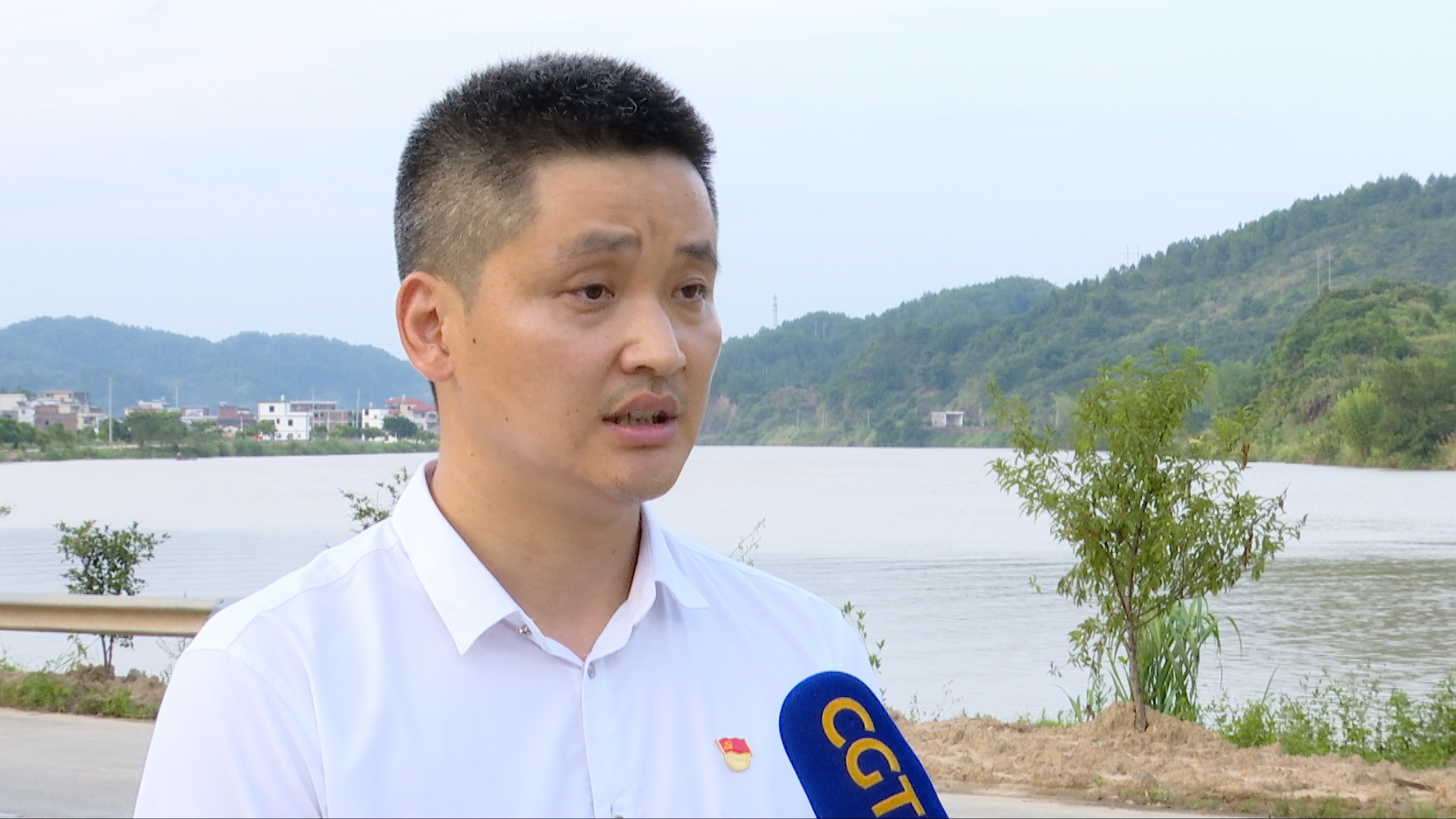
First Party Secretary Wang Tianyi of Changzhou Village in south China's Guangdong Province speaks to CGTN. /CGTN Photo
Several years ago, the local government partnered with Xinhui Biotech, an oil-tea camellia enterprise.
Aside from providing funds to the poor, the company introduced a system that trains villagers, and offers technological know-how of equipment and harvesting processes. These transferable skills have been welcomed by many, as previously, harvesting was all manual labor. The government has also provided Xinhui with support in terms of upgrading the technology and manufacturing equipment.
Luo Biqun, the tech firm's general manager, believes that introducing technology is no threat to what was traditionally a manually-operated industry.
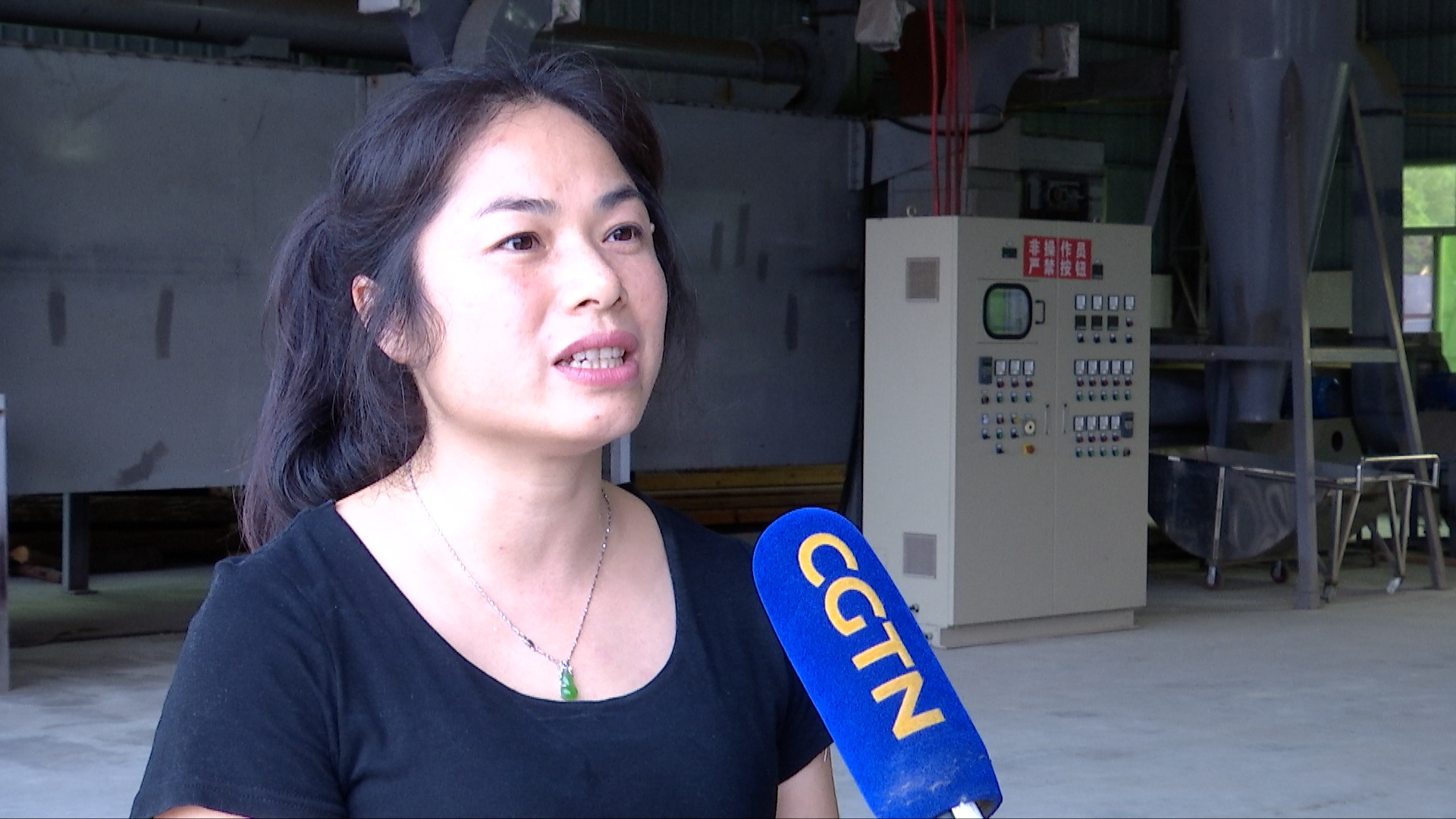
Luo Biqun, Xinhui Biotech's general manager, speaks to CGTN. /CGTN Photo
"In this industry, our company's greatest contribution is the automated shelling and separation technology of fresh oil-tea fruits. The advances in this tech have brought a qualitative leap to the development of the entire industry, which is truly a breakthrough in what was a bottleneck of slow industrial development here."
Four years of research and development have led the company to increase efficiency — what manual labor could finish in 100 days can now be done in 24 hours. The company is now the leading enterprise in the field of agriculture when it comes to poverty alleviation in Guangdong Province.
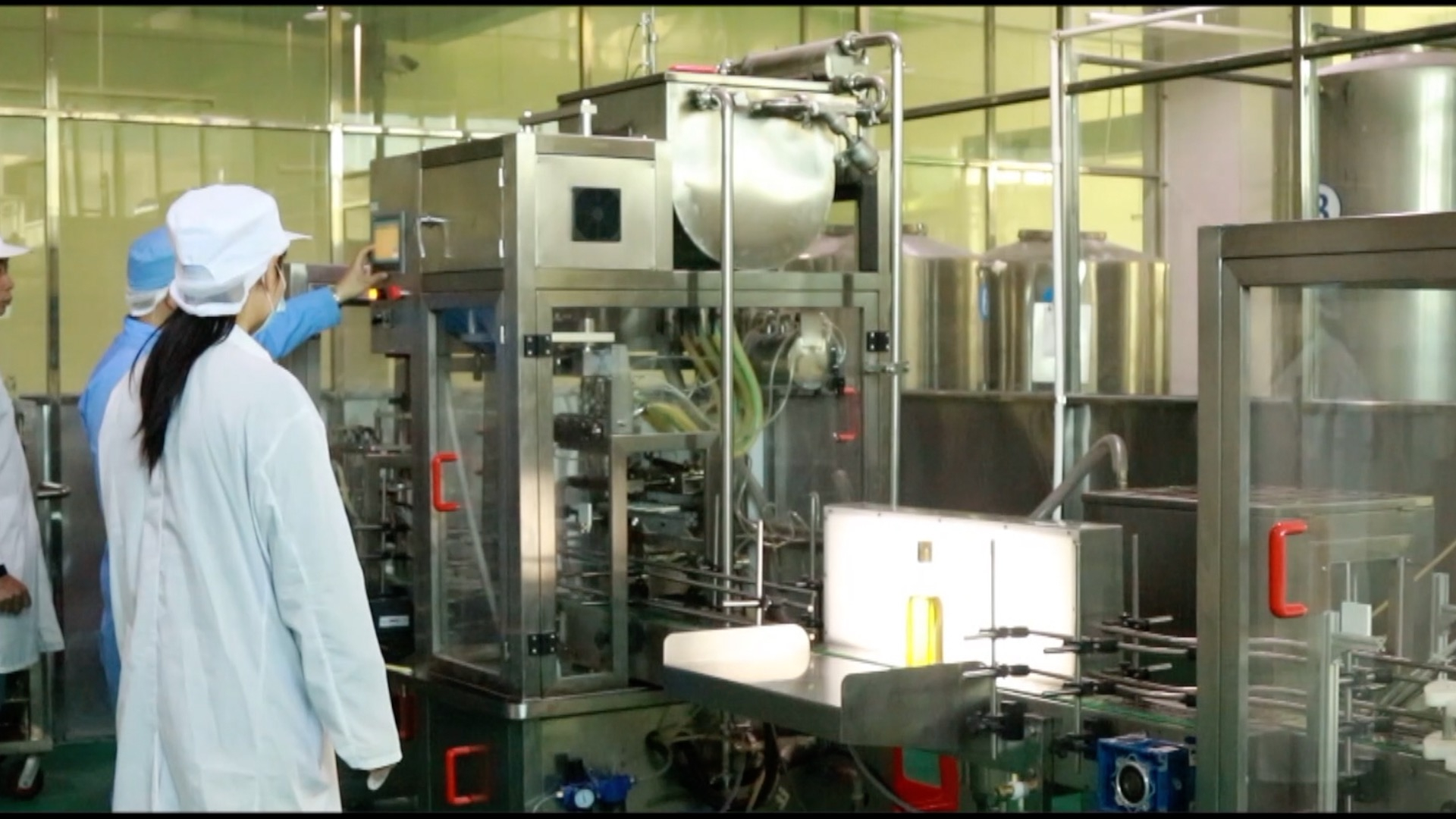
Inside the processing plant. /CGTN Photo
Local villagers view these measures as a chance to improve their lives and earn more, while also having a greater role in the oil tea market.
"We used to use traditional methods of peeling our grain. Now with the new tech, we've not only expanded the planting area, but we've increased our selling price point. This has brought us newfound wealth. Previously the process took so much time, but now with these measures, we’re simplifying everything and entering the market stronger,” say Luo Yuxu, an oil tea plant farmer in the village.
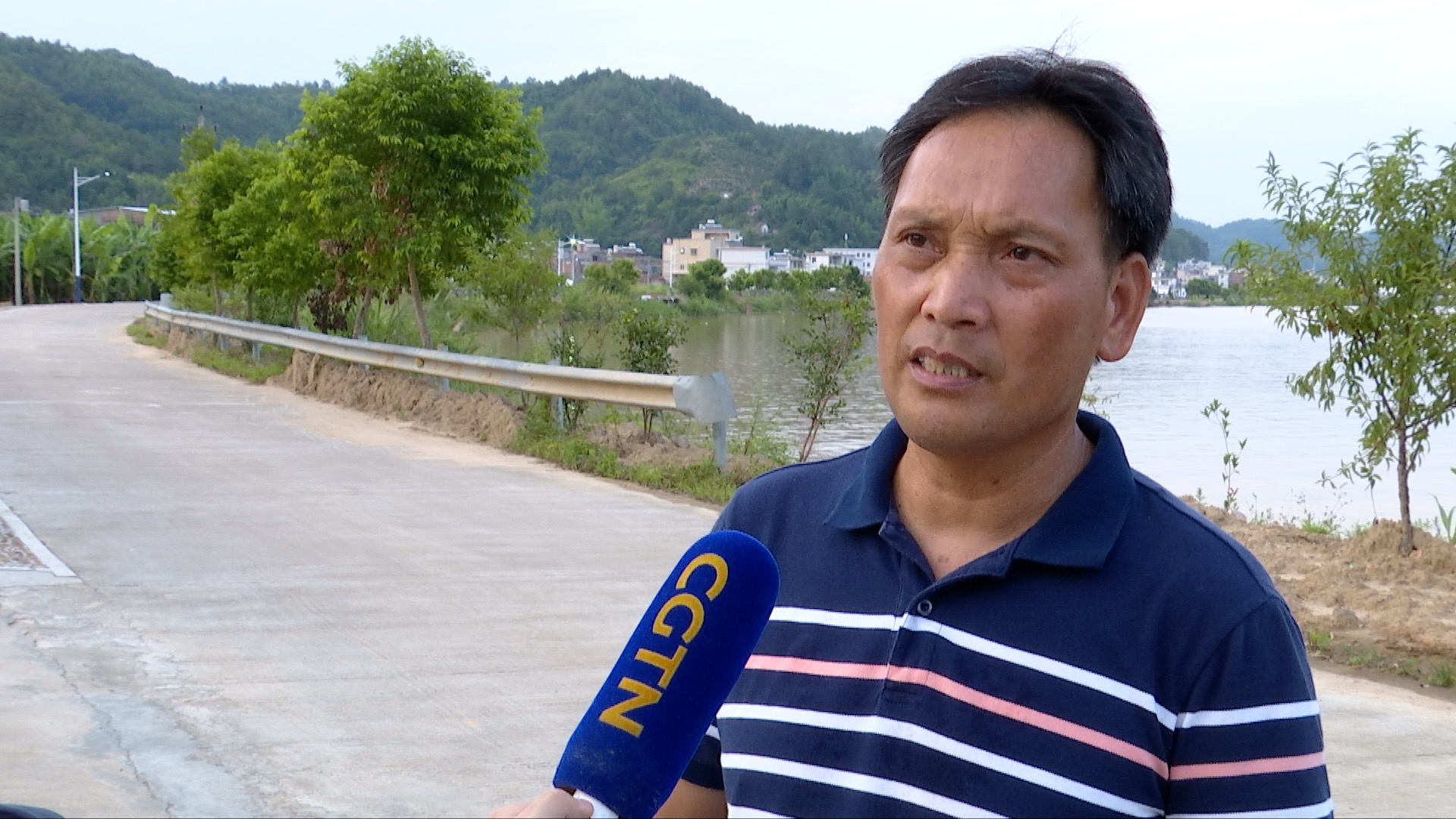
Luo Yuxu, an oil tea plant farmer in Changzhou Village in south China's Guangdong Province, speaks to CGTN. /CGTN Photo
The company says it plans to continue developing its technology in the foreseeable future. They also provide free seedlings and organic fertilizers to the remaining poor households, guiding them to become entrepreneurial and innovative. With Changzhou Village’s recent success, the measures in place are now going beyond Guangdong Province, while moving further away from being dubbed as "poverty alleviation measures."
Luo Biqun is quite optimistic about what her small hometown has accomplished, and what it means for the rest of China.
"Our equipment has been recognized by domestic counterparts. In the future, we will share this technology with the rest of the oil-tea industry, striving to develop even better tech within the industry. We also plan to share our development with tea farmers across the entire country, while developing China’s overall oil tea industry."

Copyright © 2018 CGTN. Beijing ICP prepared NO.16065310-3
Copyright © 2018 CGTN. Beijing ICP prepared NO.16065310-3